Most expats have a love/hate relationship with the N.Y. Times, with the love consisting of that moment of eager anticipation upon seeing that the paper of record has deigned to cover one’s adoptive country, and the hate consisting of apoplectic exasperation at the trivial “color” pieces it generally runs or how far off the mark its more serious coverage is. Like drivers, the vast majority of whom rate themselves as above average, expats universally consider themselves more qualified than their local Times reporter. As if to put that notion to rest, the Times magazine ran not one, but two solid […]
Briefing Archive
Free Newsletter

In pursuit of Foreign Minister Ahmet Davutoglu’s concept of strategic depth, Turkey has been reaching out to rising powers in Asia while at the same time offering itself as a mediator in disputes in its near abroad. As part of this approach, Turkey is leveraging its longstanding ties with Pakistan and its stature as one of the few industrialized countries in the Muslim world to create a diplomatic role for itself in Afghanistan. But in a sign that Ankara’s geopolitical outreach cannot transcend regional fault lines, Turkey kept India out of the January 2010 tripartite summit on Afghanistan at Pakistan’s […]
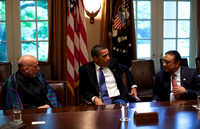
At the heart of the U.S. war in Afghanistan lies a striking and unresolved contradiction. While the U.S. has sent approximately 100,000 troops to this impoverished, landlocked country to combat a fearsome local insurgency, the actual focal point of U.S. policy in the region largely revolves around protecting and stabilizing a country just across Afghanistan’s eastern border: Pakistan. It’s an ironic but not altogether surprising strategy. After all, Pakistan remains home to Osama bin Laden, his key lieutenants and other terrorist organizations intent on striking American targets. The country maintains a significant nuclear capability, and its ongoing conflict with India […]
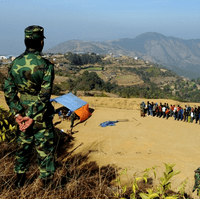
With the U.N. Mission in Nepal (UNMIN) preparing for its Jan. 15 exit, few were surprised by the head of the mission’s final, stern warning. In a statement, UNMIN Chief Karin Landgren warned (.pdf) that “growing differences within the major political parties add to the mistrust between them, and the failure of the peace process to advance had strengthened the hand of those on all sides who derided it as unproductive.” Landgren, like several experts, also warned that a return to war is possible. But will UNMIN’s departure exacerbate the risk? UNMIN was established in January 2007 to support the […]
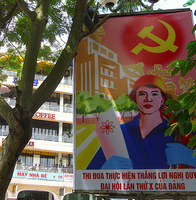
As the 11th National Congress of the Communist Party of Vietnam (CPV) opens in Hanoi on Jan. 12, the country is at a crossroads in terms of its future development trajectory and, possibly, its international posture. During the nine-day gathering, the congress is to discuss, revise and approve the document that sets the guidelines for Vietnam’s 2011-2020 national socio-economic development strategy as well as the CPV Central Committee’s political report. In addition, the nearly 1,400 delegates, representing more than 3.6 million party members in 54,000 grassroots organizations, will elect the new Central Committee. The 160 full members and 21 candidates […]
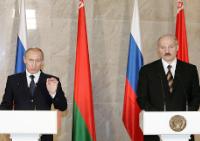
In the ongoing saga of Russian energy diplomacy — intimately tied to Moscow’s attempts to consolidate its influence in its “near abroad” — the Dec. 9 oil-trade agreement with Belarus goes down as an important marker of Russia’s reinvigorated authority in its immediate neighborhood. With President Viktor Yanukovych now exercising increasingly authoritarian control in Ukraine, and Belarus no longer flirting with the West, Moscow can safely assume that the two-decade era of Western institutions and influence expanding eastward has been put on hold indefinitely. This turning point is concurrent with a thawing of relations between Russia and many Western countries, […]

As Argentines enjoy the final summer before electing a new leader later this year, uncertainty surrounds the direction of the country’s domestic and international policies. High levels of inflation, social unrest, growing insecurity, a dissatisfied and powerful agricultural sector, a continued spat with the U.K. over the Falkland Islands and accusations of being a haven for laundering drug money are but a few of the challenges the next Argentine leader will face. Four years ago, on the eve of presidential elections in 2007, much of this uncertainty did not exist or had not yet become apparent. At the time, the […]
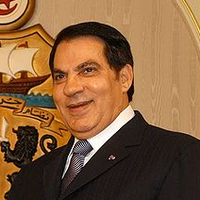
The Middle East and North Africa welcomed the New Year with a rare phenomenon: protests in an arc stretching from Algeria to Kuwait, directed against repressive regimes at home rather than a foreign power. The protests are a rare outpouring of pent-up frustration and anger at discrimination and failed economic and social policies as well as corruption in a region that is governed by authoritarian governments intolerant of public criticism. It is too early to conclude that the protests signal a milestone after which Middle Eastern population groups no longer quietly endure repression and economic deprivation and instead increasingly and […]

This is Part IV in a four-part series. Part I examined the follow-up agreement to the Kyoto Protocol. Part II examined the REDD+ agreement. Part III examined financial assistance. And Part IV examines technology transfers and adaptation. CANCÚN, Mexico — In the past 10 years, technology developments in the environmental sector have progressed significantly. Solar panels now have the capacity to power entire regions of Germany. Wind turbines provide small to medium-sized cities across the world with their energy needs. Geothermal heating is a functional reality, while methane captured from modest-sized landfills can offer electricity to thousands of nearby homes. […]
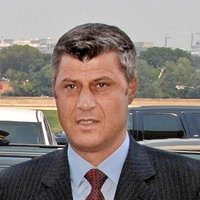
Almost three years after its declaration of independence, backed by the U.S. and many of its allies, Kosovo is the object of increasing concern for the international community. On Dec. 12, the Democratic Party of Kosovo (PDK), led by incumbent Kosovan Prime Minister Hashim Thaci, won a plurality in Kosovo’s first post-independence general elections. Only days later, Thaci, a Kosovo Liberation Army (KLA) leader, was accused of being the head of a mafia organization involved in murder, human-rights abuses, organ harvesting and heroin smuggling, among other offenses, in a report for the Council of Europe leaked to the U.K.’s Guardian […]
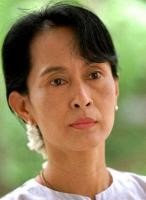
The recent release of Burmese democracy icon Aung San Suu Kyi could produce, as a ripple effect, a shift in the relationship between Burma and the U.S. Suu Kyi has stated that she intends to pursue reconciliation with the junta. This, in turn, could suit Washington’s softening stance toward the regime and the Obama administration’s stated preference for alternative policies in dealing with Burma. Suu Kyi’s decision is dictated by the reality on the ground. Her National League for Democracy party (NLD), which won 1990 elections that were never recognized domestically, was disbanded after it boycotted the November 2010 parliamentary […]
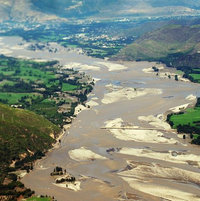
This is Part III in a four-part series. Part I examined the follow-up agreement to the Kyoto Protocol. Part II examined the REDD+ agreement. Part III examines financial assistance. And Part IV will examine technology transfers and adaptation. CANCÚN, Mexico — The great paradox confronting international climate change talks like December’s Cancún conference is simple: The countries who have contributed least to global emissions of greenhouse gases will bear the greatest brunt of the changing weather patterns that result from them. Conference participants and observers agree that the solution is also simple: Those who have polluted the most should fix […]
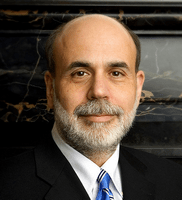
Late last month, the Federal Reserve announced that it was authorizing the extension of temporary credit lines, or “currency swaps,” with major foreign central banks through August. While five economies are included in the extension, it is the Fed’s credit line to the European Central Bank (ECB) that is the most significant in light of Europe’s continued debt woes. The decision to extend the currency swaps, which were initially scheduled to expire in January, suggests that the Fed isn’t counting on 2011 to be free of international financial distress, and that it remains prepared to throw its resources behind any […]
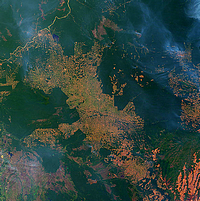
This is Part II in a four-part series. Part I examined the follow-up agreement to the Kyoto Protocol. Part II examines the REDD+ agreement. Part III will examine financial assistance. And Part IV will examine technology transfers and adaptation. CANCÚN, Mexico — Amid all the discussion of global warming and how the international community can deal with it, the term “REDD +” was a particular focus of attention at December’s Cancún conference on climate change. The initiative stands out as the newest, but perhaps the least-tested and least-understood method to reduce global carbon emissions and abate rising temperatures. If the […]

This is Part I in a four-part series. Part I examines the follow-up agreement to the Kyoto Protocol. Part II will examine the REDD+ agreement. Part III will examine financial assistance. And Part IV will examine technology transfers and adaptation. CANCÚN, Mexico — Observers and participants at December’s climate change summit in Cancún, Mexico, routinely identified a follow-up agreement to the Kyoto Protocol as one area where progress was essential. The odds of reaching one were not promising. With just one year left on the Kyoto treaty, and Japan firm in its stance that it will not permit an extension […]
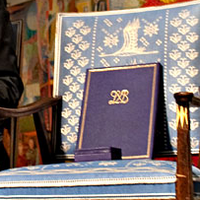
This is Part II of a two-part series. Part I examined the reality of freedom and repression in contemporary China. Part II examines the Chinese government and society’s struggle to adapt to the information age. BEIJING — Following weeks of outraged rhetoric and divisive diplomacy from Beijing, last month’s Nobel Peace Prize ceremony was blacked out on most — but not all — of China’s international satellite channels. The New Yorker’s Evan Osnos remarked that “The black screen is a darkly comic relic . . . left over from a time when Chinese newspapers hailed bumper harvests and denounced foreign […]
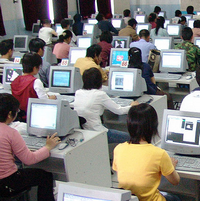
This is Part I of a two-part series. Part II will appear tomorrow, and will examine the Chinese government and society’s struggle to adapt to the information age. BEIJING — China’s rise is one of the critical geopolitical variables of our time, with many in the West fearing the advent of a politically repressive, secretive new superpower. However, Chinese society is more open than is commonly believed, and in certain spheres, Chinese citizens may even enjoy greater liberty than their Western counterparts. Moving to a more realistic appreciation of the distribution of freedom and repression in contemporary China can not […]
